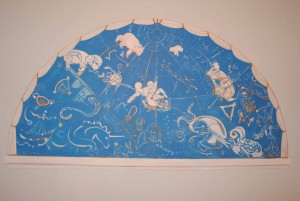 What happens to a man who is given a message that will ‘shake the conscience of the world,’ Â but no one will listen?
What happens to a man who is given a message that will ‘shake the conscience of the world,’ Â but no one will listen?
This is the defining question of Yannick Haenel’s fictionalized biography of Jan Karski, a leader in the Polish Underground who assumed the daunting task of delivering the truth of what was happening not only to the Jews of Poland but also to his homeland. His dedication to his task as a messenger drives this compelling story and engages the reader from beginning to end. More than anything, the reader is inspired by Karski’s unyielding commitment to speaking the truth despite the tremendous personal costs.
The Messenger is one of those books with scores of significant statements. If you are a smart woman reader who likes to underline, asterisk, and annotate, your book will be filled with comments and marks. Observations like the ones below will make you stop and think:
- Sixty years after the liberation of the death camps we know that it is impossible to shake the world’s conscience, that nothing will ever shake it because the world’s conscience does not exist.
- Jan Karski discovers that death has nothing exceptional about it. And that it amounts to precious little. Above all, he discovered that the worst thing of all is not violence, but violence that is gratuitous.
- It is impossible to eliminate a man’s life, because a man exists in the lives of others, and what we call time extends each person’s existence among all our existences.
- We think that world history is happening far away from us, it always seems to be occuring without us, but in the end we realize that it is the history of our souls.
- There is never an answer to abandonment, and there is no worse abandonment than that suffered by the Jews of Europe. Not only were the Jews of Europe abandoned by mankind, but they were abandoned by God.
While this book certainly deals with the horrors of the Holocaust, it is the triumphant tale of a Righteous Gentile who suffered because he was not heard. It carries a universal message most clearly conveyed when Karski finally meets with President Roosevelt.
At the end of the meeting, which is painfully futile for Karski, Roosevelt said, “‘Deafness is just one of evil’s ruses.’ Â Because men act only according to their own interests, and it was definitely in no one’s interest to save the Jews of Europe, and so no one did. Even worse: the Anglo-American consensus masked a shared interest against the Jews. But I understood that only much later, because shameful truths are always revealed slowly.”
Jan Karski’s story will inspire you, and Yannick Haenel’s novel will stay with you long after you finish it. We recommend this book highly. For discussion questions on The Messenger, click here.


